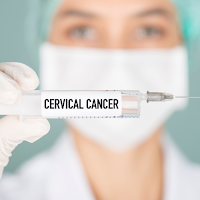The growth of cervical cancer is a risk and any woman who is active in her sexual relationships is at risk. This is due to the fact that it's caused by sexually transmissible cancer' (physically communicated infections) which can trigger the HPV' (the infection liable for the development of cervical tumors). There are a variety of treatments available to treat HPV, however, it could, based on the stages of the cancer.
The first treatment
could be an operation performed by a Cervical cancer specialist. There are
two types of medical procedures that can be done. The first is known as a cone
biopsy. What a specialist performs in this procedure is to eliminate a
cone-shaped tissue fragment from the cervical channel in order to differentiate
the harmful cells. The goal of this treatment is cancer detection, infinitely.
We also have a surgical procedure called hysterectomy.
Hysterectomy is
an operation that removes the uterus and sometimes also the cervix. There are
two methods to remove the uterus: via the vagina or by removing it from the
midsection. If cancer has progressed, the treatment could require the removal
of the fallopian tubes, ovaries, and any tissue that is close to the organs.
Extreme hysterectomy may be done on women with narrow cervical tumors. Cancer patients
with cervical cancer will be treated best by a gynecological surgeon.
Treatment for
radiation also works and is usually applied to malignancies that are not
operable, or in adjuvant therapy to chemotherapy. Its rate of response is
excellent and it is extremely well-received. The secondary effects, which
include loosening of the bowels and crabby bladder, queasiness, touchiness, and
vaginal drainage are manageable with medication and other developments.
In the end,
chemotherapy is usually used alongside radiotherapy and has better results in
comparison to giving radiotherapy by itself. Chemotherapy is sometimes used
only in cases where cervical cancer has advanced.
If you are
suffering from Cervical Cancer, it is vital to consult with the most
reputable cervical cancer specialist located in Delhi. A competent doctor can
assist the patient and help to determine which treatment is most suitable for
them. Patients should seek an additional opinion if they believe have a problem
with their diagnosis or treatment procedure suggested to increase their
security.







.png)

